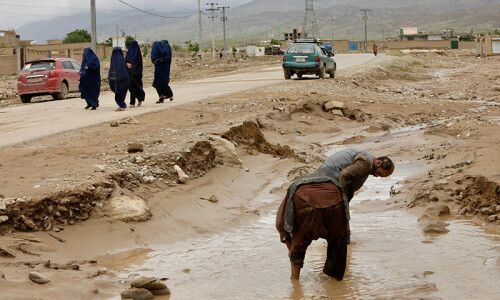IN Pakistan’s context, the suspension of a subordinate is best described as a responsibility-shedding tactic. Unfortunately, the political bosses find this a nifty way to divert attention from their own incompetence. We can see this in the aftermath of the attack on the Ziarat Residency and the Nanga Parbat tragedy. The Ziarat attack had stunned the country, but all that the people got as a sop more than a week later was an announcement by Balochistan Chief Minister Dr Abdul Malik Baloch that he had suspended the deputy commissioner and five police officials because they had “failed to protect the Quaid-i-Azam’s Residency”. Up in the north, the mountaineers’ murder may not have caused emotions to be as bruised, but the cold-blooded slaughter of a peaceful group of trekkers nevertheless sent shockwaves across country. They were tourists and had no motive other than that of scaling Pakistan’s daunting peaks. Then Interior Minister Chaudhry Nisar Ali Khan sprang into action which saw the federal government suspending the Gilgit-Baltistan chief secretary and the inspector general of police, causing the GB chief minister to criticise the move.
In similar fashion, after acts of terrorism in Karachi, high-ranking police officials have often enough found their services being suspended by the government. Certainly, suspensions and transfers may be necessary where dereliction of duty or abuse of the law is detected. But unfortunately, our politicians appear to use this tactic to absolve themselves of the blame. They must realise and feel themselves responsible for the sober truth: tens of thousands of Pakistanis have been killed or wounded by the militants over the years, but neither the Musharraf government nor the PPP-led dispensation that followed managed to formulate a comprehensive counterterrorism strategy. Merely suspending police and other officials does not cause people to forget where the buck stops.










































